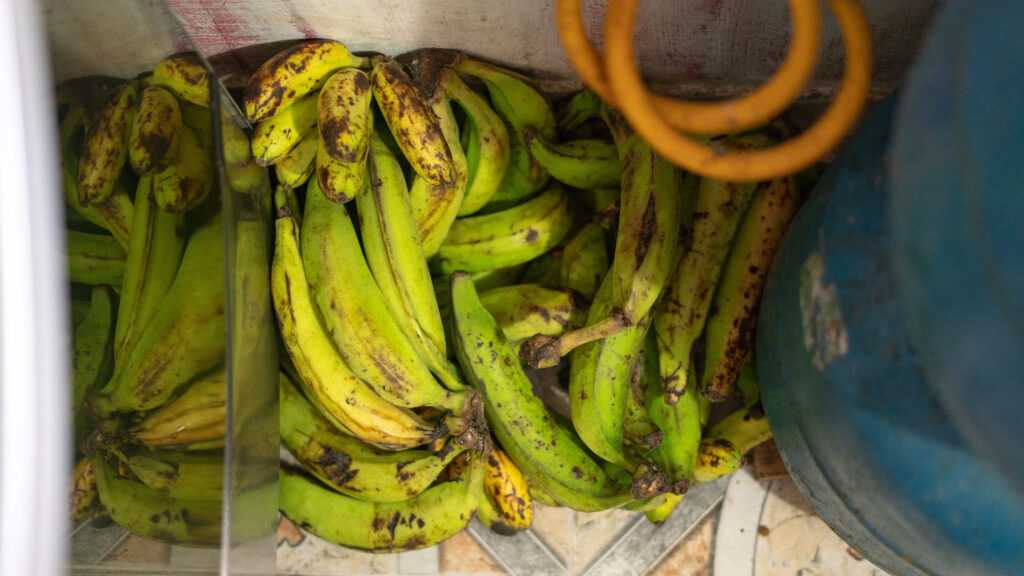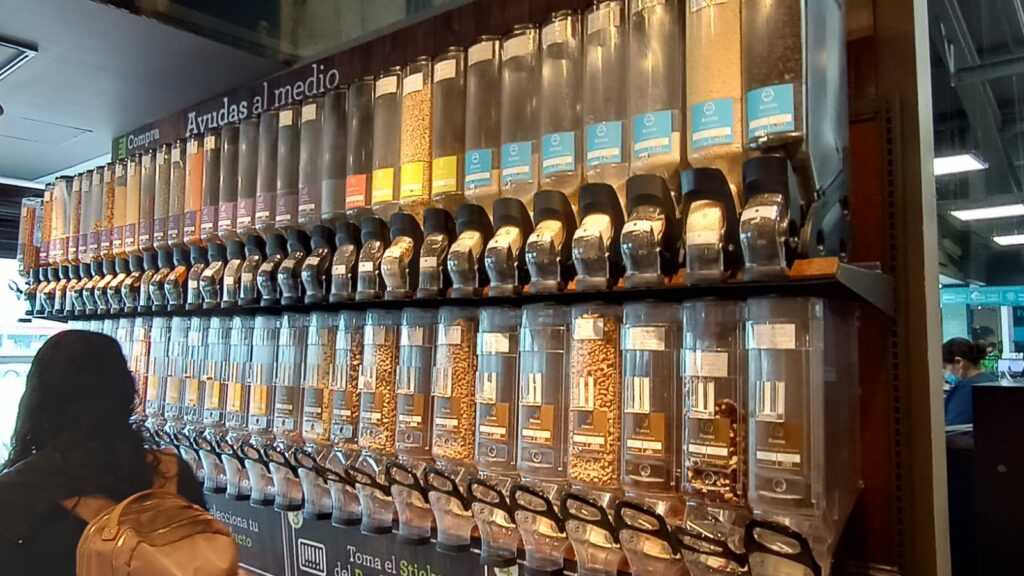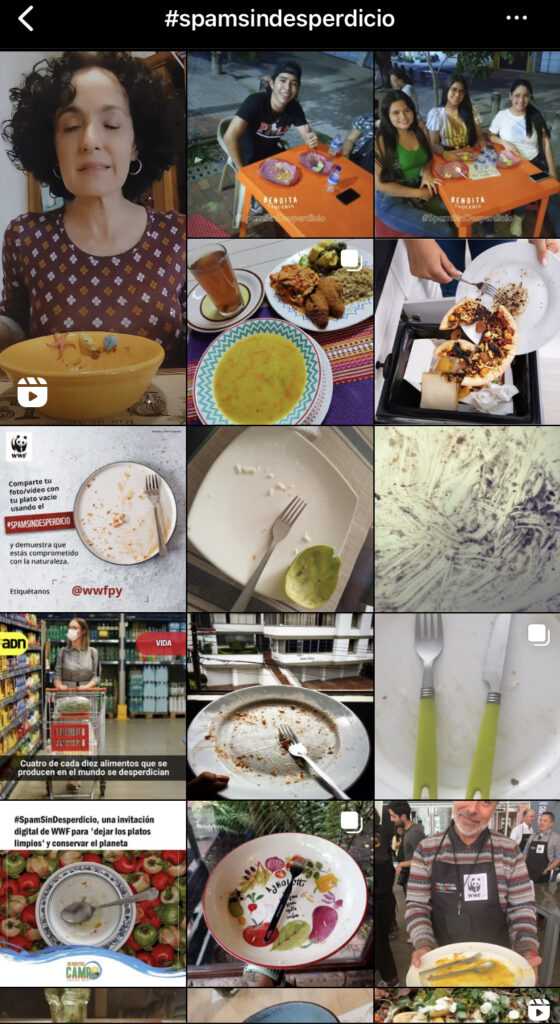Colombia
In Colombia, Future Food Together engages the private sector to encourage and provide support for the implementation of SCP principles, with particular focus on sustainable, deforestation-free value chain development, reducing food waste and raising consumer awareness to drive long-term change through building demand for sustainable products.
Our work in Colombia ended in 2023
Find out what we achieved below.
Our Work
Our work in Colombia started in 2020, and focused on:
- Building partnerships with global charities like WRAP, to develop two pilot models aimed at reducing food loss and waste for fresh produce in supermarkets and to improve packaging/reduce plastic waste.
- Developing policy recommendations by participating in multi-stakeholder alliances and agreements (for example the Accountability Framework Initiative (AFI) and the Tropical Forest Alliance (TFA) and with the local government, to improve national strategies for SCP with a focus on the agri-food sector. Additionally, Future Food Together also provided input to national plans for the reduction of GHG emissions associated with food and land use, while simultaneously working to expand policy commitments (NDCs, SDGs).
- Working with three large corporations such as Èxito Group to support their implementation of zero deforestation commitments, development of conservation agreements for their cattle suppliers and training of staff.
- Raising awareness amongst consumers through a campaign that aims to improve understanding on how food consumption and production patterns can affect ecosystems, the environment and contribute to GHG emissions with a special focus on food loss and waste.
© WWF Colombia
Our Results
Business Collaboration
Future Food Together is focused on supply chain mapping, analyses, and supply risk assessments. A dashboard was developed to help businesses track their supplies and change their procurement towards sustainability. This way, private sector transformation towards sustainable business practices was supported.
Nutresa and Future Food Together have joined forces under the sustainable sourcing process approach, starting with the palm oil supply chain. Our team developed tools and methodologies that help reduce pressure on forests, and was engaged in international public-private partnerships to reduce deforestation. Nutresa is the fourth largest food company in Latin America, with different business lines and an important international presence.
With Alquería, we were also working on collaborative goals and campaigns related to sustainable supply chains. Alquería is one of the most important dairy and food production companies in Colombia. In this workstream with Alquería and its suppliers, a new Sustainable Dairy Landscapes proposal was prepared.
Sustainable Sourcing Guidelines
Our team has developed a guide to support the private sector to transition towards more sustainable practices covering the commodities palm oil, livestock, milk, cocoa and fisheries. The guidelines include sections on knowledge, compliance and disclosure of commitments, verification and certifications for each of the commodities and a detailed checklist for businesses to see whether their sourcing is in line with sustainability principles. Find out more here.
We also worked with Èxito Group, the largest retailer in Colombia, to implement zero deforestation commitments for beef and palm oil. The retailer trained its staff in key concepts such as supplier mapping and environmental and social risk analysis. A methodology was developed for conservation agreements for their cattle suppliers. The joint work also included support for adoption of the AFI (Accountability Framework Initiative) principles.
© WWF Colombia
Consumer Outreach
One sign of an unsustainable food system is food loss and waste. To better understand Colombian habits and attitudes towards food waste and sustainable consumption, our project team looked more closely at household food waste. This foundational data was used to create a focused consumer campaign that addressed the key issues that have been revealed. Our team found that the key to effective consumer interventions is to provide consumers choices for practical actions that address their relationship with food, from shopping through storing, making meals, and handling leftovers. The first step can be being aware of the issue and transitioning to more environmentally friendly behaviors. As a result, providing information and being upfront about the problem of food loss is essential. Sustainable practices could involve attempting to consume fruits and vegetables even if they do not appear to be as fresh as when they were first purchased, being aware of the possibility of food waste when making food purchases, and cooking smaller servings.
Many people primarily think of food waste as the leftovers on a plate, omitting other crucial processes like cooking or storing where it can also happen. Due to this, the website www.vivesindesperdicio.com was developed so that people may learn how to prevent wasting various sorts of food.
A creative agency created “The value of food,” a communication strategy that avoids emphasizing either the massive amounts of food that are wasted or the people who go hungry—narratives that are frequently utilized when this topic is raised. Instead, the method involved educating people about the enormous environmental cost associated with food, which is made all the more concerning in the United States, where, according to current data, 34% of food is lost or wasted. Thus, the key point is:
“Food costs the Earth a lot. Don’t waste it.”
The campaign has reached more than 20 million people, over 41 percent of its population, with its novel concept.
© WWF Colombia
Project News
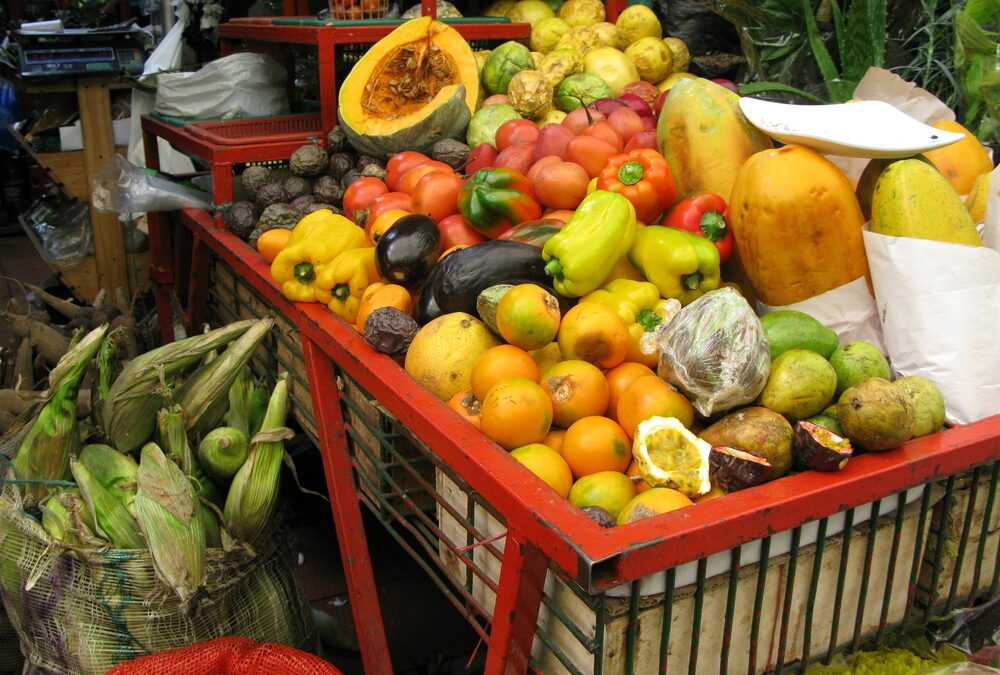
‘Why Do We Eat What We Eat?’: Podcast Series launched in Colombia
Have you ever found yourself curious about the stories behind the foods on your plate? The podcast series ‘History of Foods’ brought to life by the collaborative efforts of WWF and the historian Diana Uribe, delves into the narratives that shape our culinary choices. This four-episode series embarks on a journey to uncover the hidden connections between the foods we eat and the natural world that sustains us.
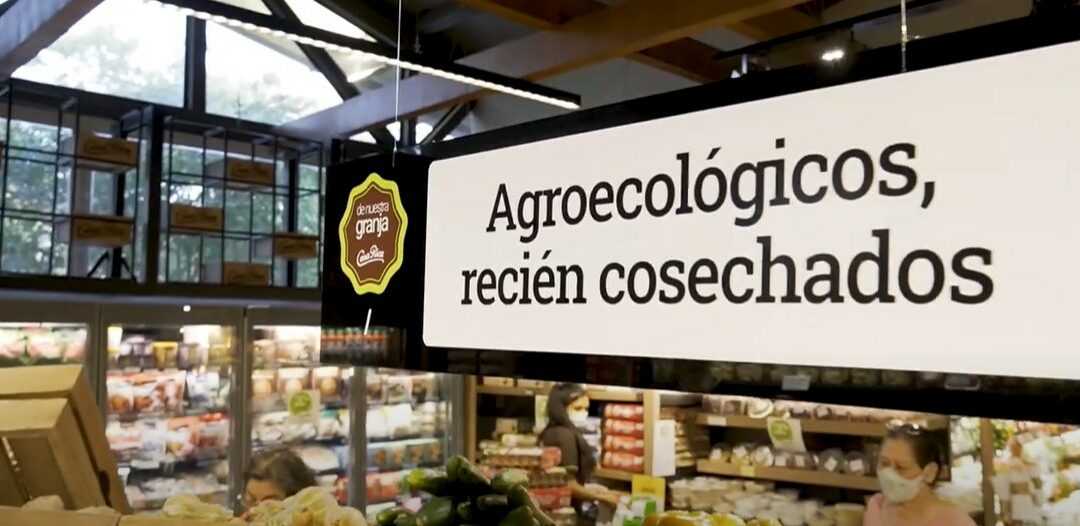
Driving Change in the Retail Sector: The Role of Collaboration
© WWF-Paraguay At Future Food Together, we believe that collaboration is key to bringing about transformative change in our food systems. Our teams in South America held an exchange workshop in Paraguay to discuss their work with retailers: to learn from each others...
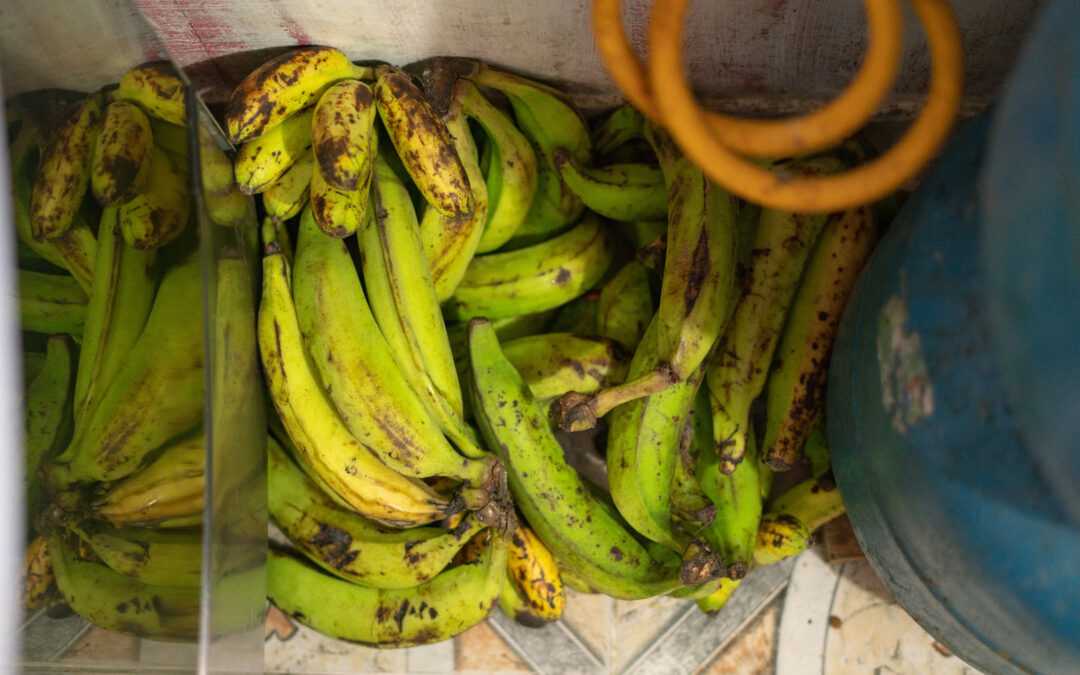
Let’s talk about food waste, but how?
WWF Colombia’s latest campaign has reached more than 20 million people, over 41 percent of its population, with a novel concept. Thousands of people interacted to show that eating everything we put on our plates helps reduce waste.

